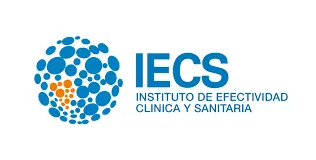Co-morbid Long-term Disease Management in the Americas (COLMA)
The Co-morbid Long-term Disease Management in the Americas (COLMA) project focuses on improving healthcare for vulnerable populations in Peru and Argentina who suffer from chronic comorbid conditions, including depression, hypertension, and diabetes. These conditions, which often occur together, pose significant challenges for effective treatment within under-resourced healthcare systems.
Project Goals
- Co-develop an integrated intervention programme that combines healthcare services and community support, supported by a digital platform.
- Strengthen primary care systems to provide more equitable and sustainable healthcare solutions.
- Build capacity and foster knowledge sharing through workshops, training programmes, and the creation of a regional network in Latin America.
Key Features of the Intervention
- Community Health Workers (CHWs) will screen and support participants, providing both healthcare guidance and community-based interventions.
- Digital Tools: A mobile platform will enable participants to track health improvements, access educational resources, and communicate with CHWs.
- Community Support Groups will encourage peer collaboration and empowerment for better self-management of chronic conditions.
Workstreams
The project is structured around five interconnected work packages:
- Diagnosis of local barriers and enablers to healthcare improvement.
- Co-development of intervention strategies with stakeholders.
- Pilot Testing to evaluate the feasibility and acceptability of the programme.
- Cluster Randomized Controlled Trials to assess the programme’s clinical and cost-effectiveness.
- Capacity Building to train healthcare professionals and researchers in the region.
Aims
Understand Local Contexts
- Explore the barriers, enablers, and challenges in healthcare delivery for chronic comorbid conditions in Peru and Argentina.
- Develop Integrated Interventions: Co-develop and adapt innovative, evidence-based intervention strategies in partnership with local stakeholders, combining community-based support, digital tools, and primary care services.
- Evaluate Effectiveness and Cost-Effectiveness: Assess the clinical outcomes, implementation fidelity, and economic value of the intervention through a cluster randomized controlled trial.
- Empower Communities: Strengthen the role of community health workers and foster peer collaboration through support groups, improving self-care and health outcomes.
- Build Capacity and Foster Knowledge Exchange: Deliver training programmes, workshops, and webinars to enhance research and implementation capacity in Peru, Argentina, and other Latin American countries.
- Promote Sustainability and Scalability: Generate evidence for the programme’s expansion and long-term integration into health systems across Latin America.
Methods
The COLMA project uses a mix of approaches to create and test a programme that helps manage depression, hypertension, and diabetes in Peru and Argentina.
- Understanding Local Needs: We work with communities and healthcare providers to understand the challenges they face and identify what support they need.
- Developing the Programme: Together with local stakeholders, we design solutions, including a digital platform, community support groups, and training for health workers.
- Testing the Programme: We run small-scale tests to see if the programme is easy to use, helpful, and practical for both patients and healthcare workers.
- Large-Scale Evaluation: The programme is tested through a cluster randomized controlled trial in 16 primary healthcare centers per country. The study includes over 1,000 participants and measures the programme’s effectiveness in improving health outcomes, such as depression, blood pressure, and blood sugar levels, as well as its cost-effectiveness.
- Building Skills: We train healthcare workers, researchers, and community members to ensure the programme is sustainable and can grow.
Trials Design
The COLMA project is testing its programme using a cluster randomized controlled trial (cRCT) to see how well it improves health and supports people with chronic conditions.
- Healthcare Centers: The trial includes around 30 centers in Peru and Argentina.
- Participants: Over 1,000 people will take part in the trial.
- Randomization: Centers are randomly split into two groups—one will use the new programme, and the other will continue with usual care.
- Progress Tracking: We will measure participants’ health at the start, after 6 months, and after 12 months.
The trial will show if the programme improves mental and physical health and if it’s worth expanding to other areas.
Impact
The COLMA project aims to improve healthcare for vulnerable populations in Peru and Argentina by addressing the challenges of managing depression, hypertension, and diabetes together.
Key Impacts:
- Better Health Outcomes: Improve the mental and physical health of patients through integrated care and support.
- Empowered Communities: Train community health workers and establish peer support groups to strengthen self-care and health awareness.
- Stronger Primary Care: Enhance the ability of local healthcare systems to manage chronic conditions more effectively.
- Scalable Solutions: Develop a model that can be adapted and expanded to other regions in Latin America.
- Economic Benefits: Reduce healthcare costs by improving treatment efficiency and enabling better self-management of chronic conditions.
Principal Investigators
Investigators
Affiliations
Funding
Funding Body: NIHR
Amount: £4,449,020.00
Period: July 2024 - June 2029










